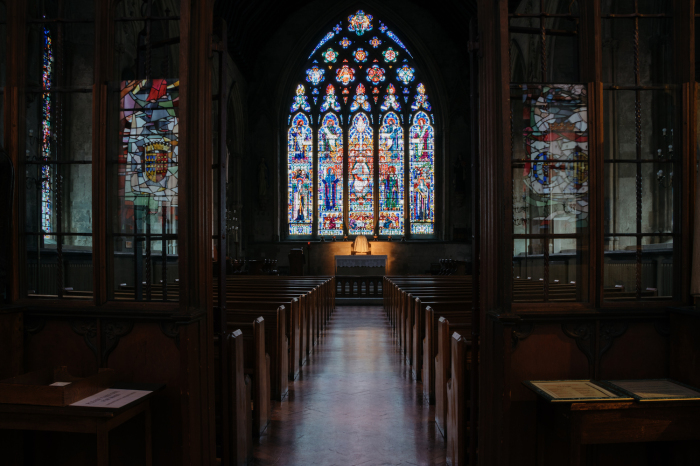Travel: Overlooked by tourists, this church hearkens back to pre-Reformation England

Pre-Reformation England was one of the most pious countries.
So much so that more English churches were dedicated to Mary than churches in France, Italy or Spain — the countries more commonly associated with Catholicism.
By the 19th century, the established Church of England was losing its preeminence and post-Reformation laws restricting the ability of Catholics to freely worship, among other things, were lifted. Full emancipation of Catholics would culminate not only in the open celebration of the mass, but also the return of the Catholic episcopacy.
Because they were deprived of the ancient churches at the time of Henry VIII’s split from the bishop of Rome, Catholics were forced to build new houses of worship for their growing community. This in turn gave rise to prominent ecclesiastical architects that included the master of Gothic revival Augustus W.N. Pugin.
One exception is St. Etheldreda’s Church in London.
The Gothic church, which dates to about 1250, was acquired or, rather, reacquired by Catholics in 1874. A subsequent restoration was carried out by the architect Sir George Gilbert Scott.
Originally a chapel in the bishop of Ely’s palace — high-ranking prelates and nobility in those days maintained a palatial London residence on top of their official seat — it fell into gradual disuse as the surrounding palace deteriorated to the point where it was demolished in 1772. The surviving chapel remained in use by assorted congregations, including Welsh-speaking Anglicans.
Catholic rites returned on June 23, 1878, with the celebration of a solemn high mass on the feast day of St. Etheldreda. The seventh century Anglo-Saxon queen and abbess built a monastery at the site now occupied by the Cathedral Church of the Holy and Undivided Trinity in Ely (about 20 miles from the University of Cambridge).
My visit to St. Etheldreda’s felt like taking a time machine to before England gave up the old religion of Rome. I imagine that is even more true when the old Latin mass is sung.
Finding the church can be a little challenging, as it is set back from the curb of Ely Place. The handsome street just off Holborn Circus is lined with Georgian townhouses that were built after the old palace was demolished.
The relatively nondescript entrance opens to a hallway. On the right are stairs leading down to the medieval crypt, which when I visited was set up with tables for what appeared to be some sort of social function. Straight ahead are another set of stairs and eventually an old wooden door that opens to a narthex created from the installation of a carved wooden screen during Scott’s restoration in the 19th century.
The east and west stained-glass windows dominate the nave, which has retained the feel of a small chapel. The gigantic windows, particularly the east window with its post-World War II stained glass, literally and figuratively overshadow the assorted statues of the English martyrs who refused to abandon Rome during the Reformation and the reliquary of St. Etheldreda’s hand by the high altar.
If you go
St. Etheldreda’s Church is open 8 a.m. to 5 p.m. Monday through Sunday. There is no admission charge. Mass is celebrated weekdays at 1 p.m. and Sundays at both 9 a.m. and 11 a.m.
By foot, the church is a mere 10-minute walk from the considerably more famous St. Paul’s Cathedral.
The nearby pub, Ye Olde Mitre, was established in 1546 by Thomas Goodrich, the first Anglican bishop of Ely.
Dennis Lennox writes a travel column for The Christian Post.
Dennis Lennox writes about travel, politics and religious affairs. He has been published in the Financial Times, Independent, The Detroit News, Toronto Sun and other publications. Follow @dennislennox on Twitter.




























